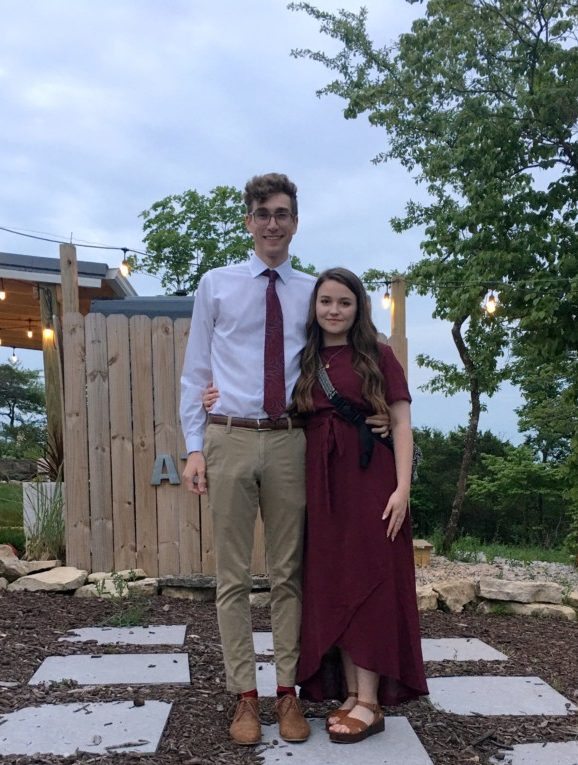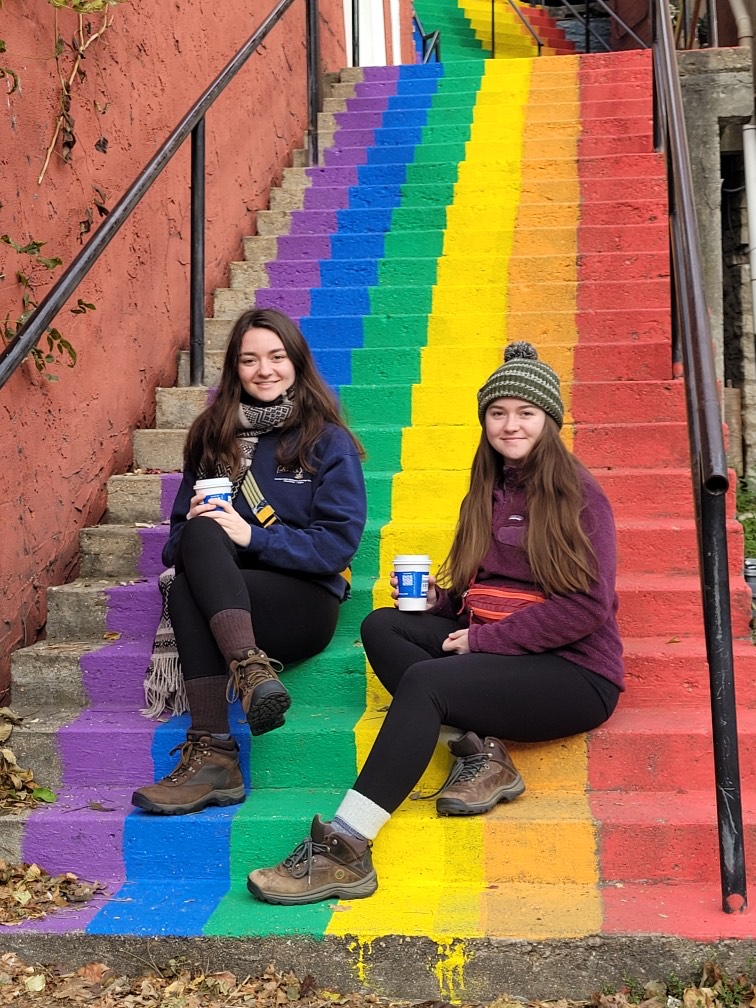The year was 1997. Jewel and Backstreet Boys were at the top of the charts. Ally McBeal and Buffy debuted on television. You may remember it as the year you married your spouse or graduated high school. We remember it as the year that CASA of Northwest Arkansas took root.
Throughout 2022, we are celebrating our 25th CASA-versary! We thought it might be fun to begin the celebration by meeting one of our advocates who has a lot in common with CASA…she TOO was born in 1997!
 Meet Savanah Ruff.
Meet Savanah Ruff.
Like CASA of NWA, she is a force to be reckoned with. An Art History major at the University of Arkansas while assisting a realtor part-time, Savanah still makes time to speak up for children in care!
Q: When and how did you become involved with CASA?
A: I joined CASA right after turning 21 years old. I always had an interest in helping children, so when my stepmom found out about CASA, we signed up together! It can be scary when you first start off as a CASA, so it was nice to have a partner on my first case.
Q: What inspired you to join the cause?
A: I didn’t have the easiest childhood. CASA helps me use what I experienced to help others. I grew up, sometimes feeling isolated and alone. I often wondered, “Am I the only one going through this?” I don’t want other kids to feel that. They aren’t alone. There is a whole community out there to support them.
Q: You’re turning 25 years old this year, like CASA of NWA! How does your age help your service?
A: It’s actually helped a lot! Both of my cases have had children of varying ages, including a few teenagers. Being closer in age has allowed me to build connections with them fairly quickly. My older kids, especially, have opened up and shared what’s really going on in a way I’m not sure would have happened otherwise. A lot of time, they feel like they are being lectured to or judged by other adults in their lives.
Q: What’s the most challenging part of this job?
A: Trying not to judge. That can be hard when you hear about a drug addicted parent or when you reflect on what these children have gone through. You must be understanding and offer help and resources to these families. On the flip side, I’m a fairly trusting person. So, I have learned to look for actions, not just words, as proof that people have changed.
Q: What do you enjoy the most?
A: I love talking to everyone on the case, seeing the children, getting updates, and knowing the judge reads my report and takes my recommendations seriously. But, most importantly, I love helping children know they aren’t alone.
Q: Twenty-five years ago, CASA didn’t exist in Northwest Arkansas. Can you imagine what would have happened if it was never founded?
A: I can’t even imagine. DHS is supposed to do the work that CASA volunteers do, but they are not always able to. These kids and families need resources to get themselves right. To keep the children safe. I think about the case of Gabriel Fernandez in California and how every single sign was there, and yet he still suffered. Would that have happened if a CASA was on his case?
Q: What would you say to someone considering joining our team of advocates?
A: This is a great organization. The training and staff supervision is extremely helpful and reassuring. But, this is heavy work. It is not an easy job, especially emotionally. But, for me, it is so fulfilling. Whenever a case closes, and I know I’ve done all I could for those children and family, well…my job is done.